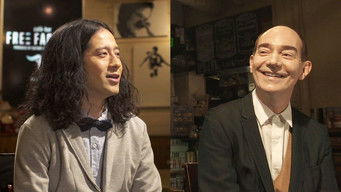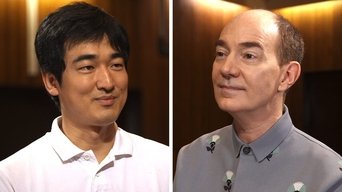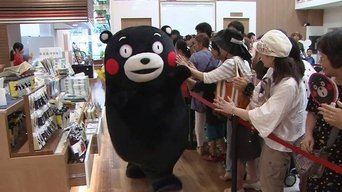Go back

Naoki Matayoshi: Creativity Inspired by Human Observation
Episode number: 1

Tetsuko Kuroyanagi: The Enduring Power of Television
Episode number: 2

Seiji Fujishiro: Expressing the Joy of Life through Light and Shadow
Episode number: 3
Overview: This year marks the 70th anniversary of the end of World War II. 80% of the Japanese population was born after the war, and the people who are old enough to remember it are all elderly. How will they pass on their stories? One man who is telling his story is the artist Seiji Fujishiro, age 91, well known in Japan for his "shadow pictures”. Why did Fujishiro feel compelled to make art about his experience of war? We ask this and many more questions as we explore Japan 70 years after the war.

Ken Endo: Legs to Stand On
Episode number: 4
Overview: In 2020, when Tokyo hosts the Olympic Games, it will also host the Paralympic Games. Japan has traditionally lagged behind in the development of artificial limbs - one man trying to change that is prosthetic leg engineer Ken Endo. He has done very promising work on robotic limbs at the MIT Media Lab, with a particular focus on artificial legs for athletes. Endo's conviction is that "disabilities lie not in humans but in technology". We speak with this visionary engineer.

Eiji Mitooka: Trains of Thought
Episode number: 5

Kashiwa Sato: Communication Design
Episode number: 6
Overview: During Japan's period of rapid growth that began in the mid-1950s, large housing developments known as danchi were built in cities across the nation. In March of this year, a project was launched to revitalize one of these now-aging complexes. It is being spearheaded by Kashiwa Sato, who is among Japan's leading creative directors.

Kundo Koyama: Shedding Old Skin
Episode number: 7
Overview: Kundo Koyama was tasked with creating a mascot for Kumamoto Prefecture in southern Japan. The resulting character, a bear named Kumamon, went on to generate 120 billion yen for Kumamoto in 2 years. Koyama's strategy is always to keep things extremely simple, and come up with ideas that he really likes. However, that way of doing things isn't always easy in Japan. He speaks with Robert Campbell about everything from the Japanese way to thinking to how he plans out his creative projects.
